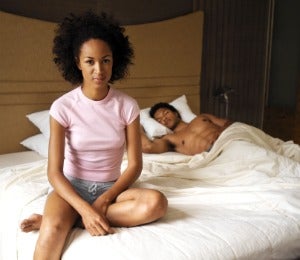

I was homebound for the entire month of January while recovering from a surgery. Yeah, it sucked to be me. Still, I was fortunate enough to have great family and friends available to “nurture the infirmed.” So what did I do to pass the time? I’d love to say read, but since I was frequently writhing in dull pain, movies were much easier to focus on. During one triple-feature marathon in “Casa de Brown,” my girlfriend sold me on watching “The Other Boleyn Girl.” Only one word can describe the experience: heartbreaking…
The film’s synopsis, which is often succinctly understated as “two sisters competing for the love of King Henry VIII,” does not do it justice. The story is about greed. It follows the rise of a family, the Boleyns, in the British monarchy during the 16th Century. The clan’s two male leaders (a father and uncle) decide to subject the former’s daughters to objectification, emotional turmoil and public ridicule by allowing them to go to the royal court and vie for the opportunity to be the king’s mistress, also known as courtesan.
If the king found a woman to his liking, and she produced a child, the entire family would be promoted in stature, gifted grandly, and the bastard offspring would likely receive the best of the best. It didn’t matter that the king was married. He was powerful. He had influence. He, it, was worth the sacrifice.
One daughter fell for the king. The other Boleyn girl became obsessed with the power she perceived she’d attain by his side. As I watched the film, I must say I was taken by the complacency many had around the notion that selling sex for power was acceptable. Then I realized that not much has changed. On any given Sunday, I can watch a host of programs showcasing women who are now willfully reducing themselves to the courtesan position. Who might these ladies be?
It would be easy to say that they’re the “hoop hos” or football groupies or unwed “Basketball Wives,” all of whom have lined up to court single or married men and have their babies for the benefit of stature — and maybe love. But see, it isn’t that simple. The Boleyn girls were “aristocrats.” They were educated. They were poised. They were beautiful.
Many of today’s modern-day courtesans are much like the Boleyn girls. They’re the educated women who are willing to sleep with a taken man to have a “piece of the pie.” They’re the fly girls who know the guy they’re dating has a baby “mama,” wife or wifey at home, but still elect to bed him — and reproduce. They’re the women who step to men of power at an event on the sly — even when he’s there with someone else. For some, today’s currency to be part of a “court” isn’t even millions of dollars; it’s swagger (you know, nice clothes or style), which translates to perceived power.
From pop culture (think Lil Wayne) to popular comportment, I see women engaging in what may be perceived as courtesan-like behavior, chasing down well-to-do men for gain. I wonder whether they ever think about how their story will end. If a man is irresponsible, married or plainly a cad, happily ever after is not likely. And what about the children? Many people speak about the statistics around single women who are heads of households, but we rarely get into the role the women play in this phenomenon.
I guess I should share that “The Other Boleyn Girl” didn’t end well. One sister was banished, the other became queen, but was beheaded — a short-lived victory, to say the least. Both sisters had children with the king. The family, who conspired and cosigned the behavior, lost what meant most. To me, the lesson was simple: you reap what you sow.